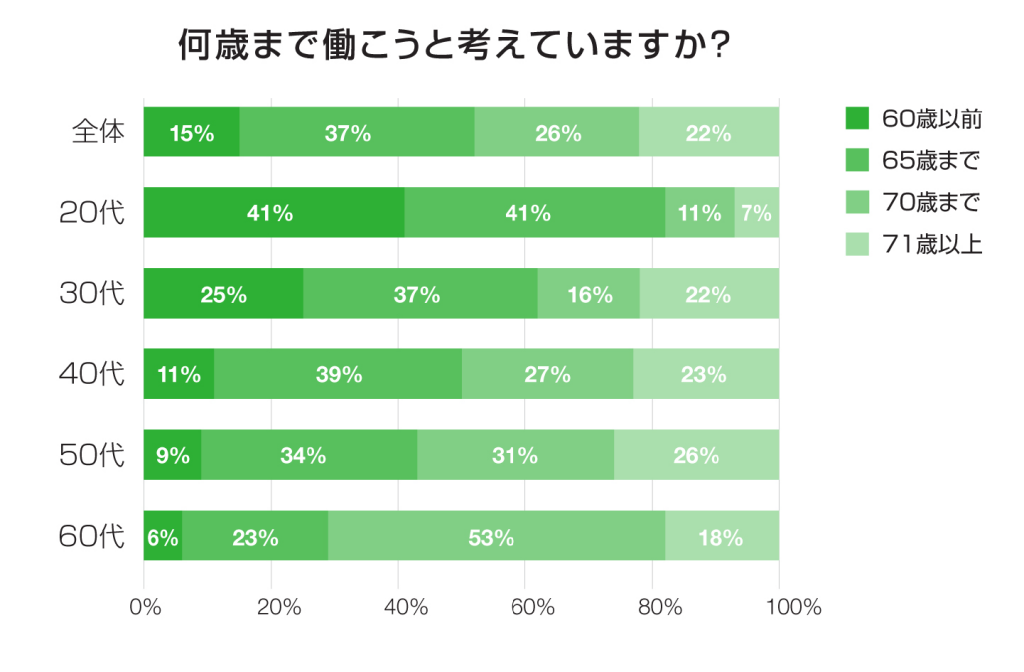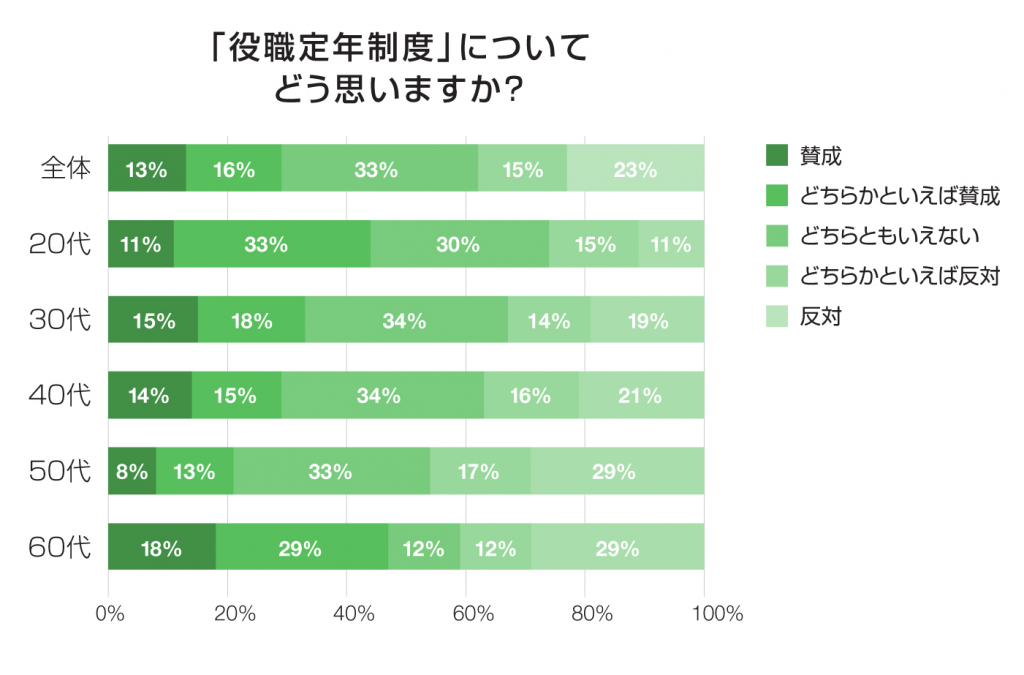On June 17, a global talent recruiting company, Robert Walters Japan announced the results of its survey aimed at Japanese workers who are permanent employees of domestic companies, titled “Career Preferences in the Era of Living to 100.”
One question the study asked was, “Until what age do you want to work?” According to the results, 85% of all respondents answered either “until 65,” “until 71,” or “past 71.” This concluded that these respondents want to work until at least 65.
When the respondents were further broken down by age, 40% of respondents in their 20s answered that they want to work until before the age of 60, with less than 20% of the same group answering that they want to work until 70 or past 71. Furthermore, the answers from those in their 30s, 40s, and 50s (the age group referred to as the core generation) changed the older they got – with the percentage of those choosing to work until before 60 decreasing, and those choosing working past 71 increasing.
On the other hand, among those in their 60s who are currently working as senior permanent employees, the majority (53%) answered that they want to work until 70, while 18% answered that they want to work past 71. The percentage of respondents indicating that they’re thinking of working past 70 was different according to age group; over half of those in their 50s and 60s were thinking of it, although 50% of those in their 40s and 38% of those in their 30s were.
 “Until what age do you want to work?”
“Until what age do you want to work?”Robert Walters Press Release(Extract)
The survey also asked about the pros and cons regarding the Managerial Age Limit Systems for those in managerial positions once they reach around 55 years old. 38% of all respondents indicated that they were against it, with some of those being “against it” and others being “somewhat against it.”
When broken down by age, 44% of respondents in their 20s answered that they agreed with it or that they somewhat agreed with it. Among respondents in their 50s, those most affected by the policy, 21% answered that they agreed with it, whereas 46% responded that they’re against it. It’s clear from the survey results that there is a difference in thinking between generations.
Furthermore, a not insignificant percentage (41%) of those in their 60s was against these policies. Many in this age group have already experienced forced retirement from their managerial positions. On the other hand, a higher percentage (47%) was in favor of the policy.
 “What do you think of Managerial Age Limit Systems?”
“What do you think of Managerial Age Limit Systems?”Robert Walters Press Release(Extract)
This study was based on a survey conducted for one week (June 3 to June 10) in the Financial Services Agency’s report on asset formation and management in an aging society. 566 current employees (from their 20s to their 60s) of Japanese and foreign-owned corporations responded.
[Related Page] Robert Walters’ Review
[Related Page] Recruitment Agency for Expats in Japan
[Corporate Site] Robert Walters Japan



















